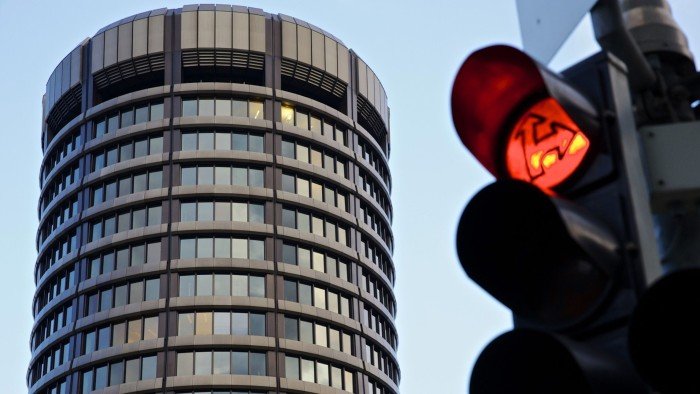Unlock the Editor’s Digest for free
Roula Khalaf, Editor of the FT, selects her favourite stories in this weekly newsletter.
Why do banks even exist in a world of burgeoning private credit? Theoretically because cheap customer deposits allow traditional institutions to lend profitably. As the old joke goes: banking is as easy as 1-2-3. Pay depositors 1 per cent, lend at 2, hit the golf course by 3.
Maybe, though, that textbook understanding is wrong. The Bank for International Settlements recently examined how the “weighted average cost of capital of banks” has evolved between the pre-financial crisis era and today. It found they’re not so competitive after all.
Within the larger and growing world of private credit, one threat to bankers’ 3pm round of golf comes from ‘business development companies’ or BDCs, a kind of publicly traded middle-market lender that raises its money from investors by issuing both stock and bonds. They are growing in size; the largest, backed by Ares Capital, has around $14bn of assets.
As BDCs have increased their reliance on debt funding, their cost of capital has fallen, to around 7 per cent, according to the BIS. And as banks have been forced to hold much more relatively expensive equity following the financial crisis and various subsequent near-death experiences, the multinational bank watchdog reckons the gap has narrowed.
For investors, BDCs have their own charm. They are mandated under US law to pay out most of their interest income to shareholders, so dividend yields can approach 10 per cent or more. That said, they also pay big fees to their managers, firms like Ares, Apollo and Oaktree. These have an incentive to issue ever more stock and grow their funds, even when shares are trading below net asset value.
In one view of the world, banks gradually withdraw from credit intermediation, and alternatives like BDCs swell to take their place. That would, at least, remove the risk of bank runs. If asset managers can price lending competitively, traditional financial institutions would have to think creatively about how to retain some kind of advantage.
That moment is not yet here. While banks have more equity than they did, they are still pretty leveraged, if only perhaps half as much as they were before the financial crisis. Their bonds come with high credit ratings, making them cheap, if not as cheap as deposits.
Besides, the BIS in the footnotes of its study concedes that the cost of debt it is using for banks that it downloads from Bloomberg data is overstated — the figure provided is not for cheap deposits but the cost of interest-bearing bonds or loans.
The idea that banks would focus more on less racy business models is no bad thing in the long run. Since the 2008 crisis, many of their edgier wagers have been shut down by regulators. Private capital’s falling hurdle rates will cause more activity to migrate off bank balance sheets. Golf courses should still be busy, but perhaps with different players.
sujeet.indap@ft.com
